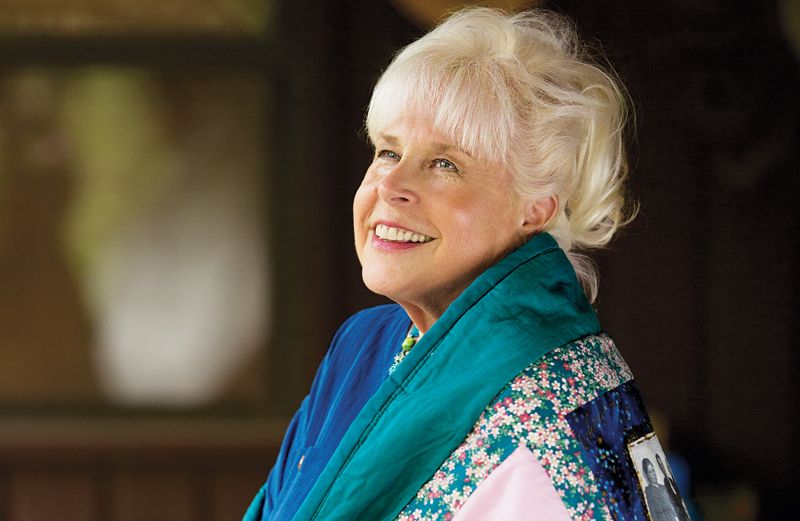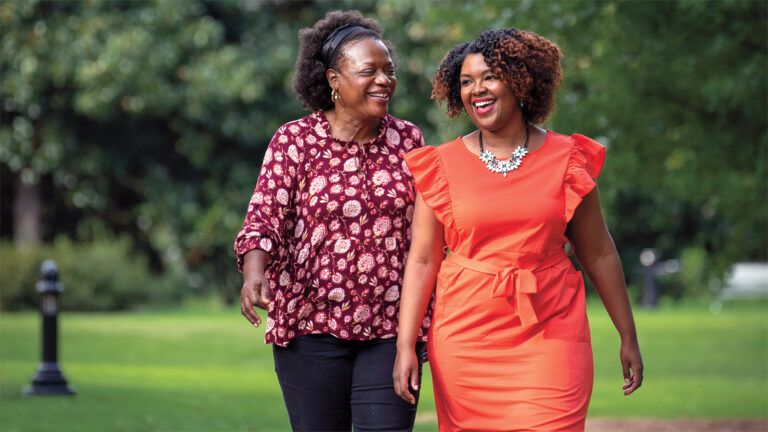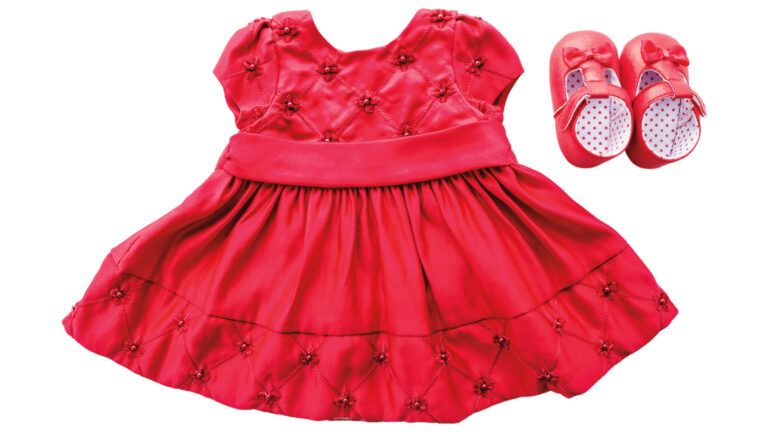I opened my mother’s linen closet and pulled out a stack of neatly folded towels. They were on the small side. Getting threadbare. Nothing like the ones I used at home. None of my four siblings would want these.
I put the towels in the “donate” pile, their worn fabric making me think of my relationship with Mom. Tattered. Beyond mending.
Mom had died a few weeks earlier, after years of declining health. Now here I was, late on a Friday evening, clearing out her home. It was a huge undertaking. Two of my siblings—a sister and a brother—had helped me sort through some things, but they’d left for the day.
It would take at least a week to pack everything up. Not that I needed much in the way of material possessions. The thing I wanted most—my mother’s love—it was too late for.
Mom had had the opposite of a happy childhood. Her mother, my grandmother, had been a hard woman. She had a mean streak and told Mom that she’d never wanted her. It wasn’t surprising that Mom grew up to trust no one. She pushed people away before they could hurt her.
In fact, she could be downright cruel. Especially to me. The second-oldest child, I’d always tried to please everyone. Maybe that made me an easy target.
Like the time Mom and I were on a trip together. We were bringing back a quilt she and her sister had put together years earlier. After her sister died, Mom wanted her nephew to have it to remember his mother by, but we’d lost track of him.
“I’ll look his address up on the internet,” I offered. “Then I can get the quilt to him.”
Mom glared at me, her blue eyes stone cold. “If I gave that quilt to you, Nancy, how could I be sure you wouldn’t keep it for yourself?”
I thought I’d developed a thick skin over the years, but her words stabbed right through me. I’d never done anything to harm her. Why couldn’t she trust me? I didn’t want to give her the satisfaction of seeing me cry, so I hid in the bathroom and sobbed.
Mom was an expert seamstress and knitter. She was known for her attention to detail, and pride in her workmanship was evident in every stitch. Sometimes I wondered if she liked sewing because it was a way to create order and beauty in a life that she felt had little of either.
She had made beautiful clothes for us girls when we were young. But somehow I always seemed to be shortchanged. \
The year she knit sweaters for my sisters, she made one for me too, but didn’t finish it until long after winter was past. And those hand-appliquéd denim blouses she gave them…Mom just never got around to making mine.
Don’t take it personally, I reminded myself time and again. It’s not about you. I had tried to accept my mother for who she was. She had a hard time showing love to her children because she hadn’t been loved when she was a child. That’s what I wanted to convince myself of, anyway.
After my father died, I was the one Mom depended on. I was retired, and even though I lived 45 minutes away, I was the one who had stayed with her the last two years when she was in and out of the hospital.
One day she’d looked at me and asked, “Why do you do it, coming here for me?”
“Because I love you,” I said. But honestly, I didn’t know if that was true. I did it because it was the right thing to do. Because if I didn’t, no one else would. Maybe it was because I was still holding out hope that our relationship would change.
“I can depend on you,” she told me in the last weeks of her life. “You’ll always be here for me.” It was the only acknowledgment she gave me before she died.
After 66 years, the only emotions I felt for my mother were relief that our relationship was finally over, and emptiness, knowing she’d never loved me. But it wasn’t over, not really. Here I was still picking up the pieces.
I reached deep into the linen closet and took out the last pile of towels. A white plastic sack of fabric was lying behind it. I peeked inside and saw a word embroidered on the top piece of cloth: Berger, Mom’s family name. Well, it was worth keeping, whatever it was.
I put the sack in my “keep” pile. But it was getting late. I would take the bag home and look through it some other time.
I carried the towels and linens from the “donate” pile out to my truck. It was already loaded down with kitchen items, clothing and other things my siblings and I didn’t want.
There was a little church down the street that operated a thrift shop. It wasn’t open now, but I decided I’d drop everything off there in the morning on my way back to Mom’s house.
First thing Saturday I drove to the thrift shop. Fortunately there was someone already there, a woman about my age, her hair in a neat gray bob. She came out and helped me unload everything from the truck.
We lugged the bags of clothes, all the bedding and towels, the boxes of plates, glasses and cutlery, into the store’s front room. It took several trips.
“Thank you,” the woman said. “We don’t often get this large of a donation.”
I nodded. Maybe someone would make good use of Mom’s things. “I’m glad you were here,” I said.
“No problem,” she said. “But if we’re closed there’s a bin out front. Just leave your things in there.”
All that next week I cleaned. In a blanket box I found two quilts. I really wanted one, but my sister and brother did too.
“Go ahead, take them,” I said, trying as usual to make everyone happy.
I wished I could forgive Mom. I asked God to take away the heartache, the resentment, the regrets. I’d wondered many times when I was taking care of Mom, God, why would you have me, the child she disliked the most, taking care of her?
By Thursday evening I had packed up another truckload of items to donate. It was dark when I left Mom’s house. I drove to the thrift shop and parked in front of the bin the woman had told me about.
I walked around to the back of the truck. A pair of headlights shone in my direction. Then a car pulled beside me.
“Let me open up the shop door,” the driver said. “We can put all those things inside.”
Her voice sounded familiar. I squinted into the darkness. It was the woman with the gray bob whom I’d met that Saturday morning.
“I thought I recognized your truck,” she said as we each picked up a box from the back to carry into the shop. “By the way, I have something for you.”
“Really?” I said.
She poked around, opening cabinets and drawers. Then she disappeared into a back room. She reappeared empty-handed.
“I know it’s here,” she said, pulling her cell phone out of her purse. “This will only take a minute.”
I tried to hide my impatience as she dialed, but I was exhausted. I wanted to get home.
The woman quickly talked to someone. She went into another room for what seemed like forever. I heard rustling. Finally, she returned with a good-sized gift bag cradled in her arms. She held it out to me.
I took the bag and stood there just holding it, puzzled.
“Here, let me help you,” the woman said. She pulled a bundle out of the bag and unfolded it. A teal-green quilt. It was a work of art. But why was she giving it to me?
Then I noticed the embroidered letters on one of the squares. Berger. This was the piece of fabric that I’d unearthed from Mom’s linen closet! I burst into tears.
“When we were going through the donations you dropped off last week, one of the other volunteers found a white plastic sack filled with quilting squares,” the woman said. “I didn’t think you would want to give those away.
“There’s a lady here who makes quilts, and when our volunteer showed the squares to her, she just had this feeling that they needed to be pieced together. So she did it.”
I’d completely forgotten about the sack from the linen closet. I didn’t even know how I’d misplaced it. Probably would never have missed it.
I traced the outlines of the quilt squares with my fingers. On the one in the top left corner, my mother had appliquéd three tulips and embroidered her name, Margaret Mandelkow.
For the block next to that, a photograph that I’d never seen of my greatgrandparents had been scanned onto the fabric. There were 16 squares in all—each with a family name. Mom’s history. My history.
The gray-haired woman said, “We didn’t know your name or if you’d ever come back. We just knew that this needed to be done as soon as possible.”
She looked a little surprised at my reaction and how profusely I thanked her. I folded up the quilt and carried it to my truck. It was more than a gift from some very gracious strangers. It was a gift from God.
He had done what neither my mother nor I was capable of and pieced together something beautiful from a lifetime of hurt and misunderstanding. I sat in the cab of my truck and ran my hand over the quilt, feeling its softness and warmth. I’d never felt more loved.
Download your FREE ebook, Creativity and Personal Growth: 7 Inspiring Stories On How Crafts Can Change Your Life.




